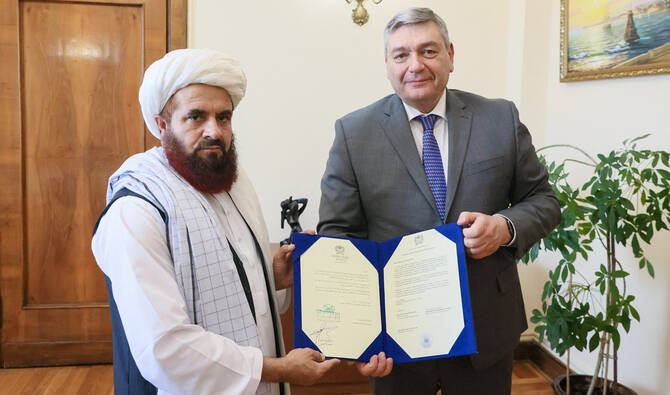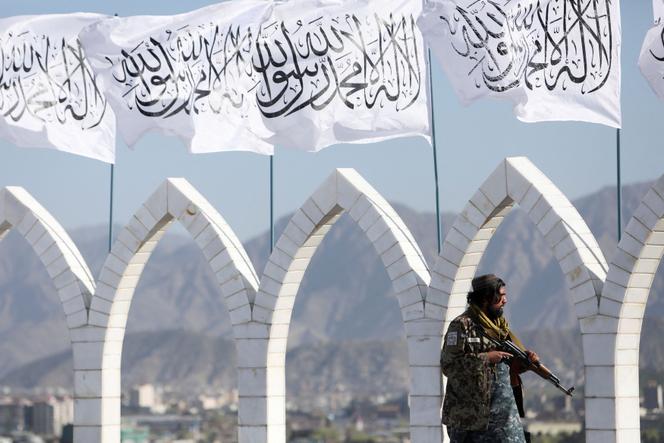On July 3, 2025, Russia formally accepted credentials from Gul Hassan Hassan, the Taliban’s newly appointed ambassador in Moscow, marking the first time any nation has granted full recognition to the group that seized power in Kabul nearly four years ago. The announcement by the Russian Foreign Ministry came after the government removed the Taliban from its list of banned organizations in April, clearing the way for official diplomatic ties apnews.comft.com.
Officials in Moscow said they believe this move will boost work in energy, transport, agriculture and infrastructure projects with Kabul. The ministry statement noted that the step aims to spur “productive bilateral cooperation” across several fields, including security and counterterrorism efforts. Russian President Vladimir Putin and Foreign Minister Sergey Lavrov both backed the decision, framing it as a pragmatic shift to engage with a reality on the ground ft.com.
In Kabul, Taliban Foreign Minister Amir Khan Muttaqi praised Russia for its “courageous step” and expressed hope that other countries would follow suit. He told reporters that formal recognition by a major power could open doors to new partnerships and ease financial and humanitarian pressures on Afghanistan. Still, no other major nation has yet moved to grant the group the same status, though several—including China, the United Arab Emirates, Pakistan and Turkey—maintain unofficial or representative ties with the de facto rulers aljazeera.comscmp.com.
Human rights advocates reacted sharply to the news, warning that this recognition could legitimize a regime that enforces strict rules curbing women’s rights and freedom of speech. The Feminist Majority Foundation called the decision “a setback for Afghan women and all who seek basic rights,” pointing to bans on female education beyond sixth grade and severe limits on women’s work outside the home. Critics argue that formal ties with the Taliban send the wrong message to other governments and risks sidelining calls for inclusive governance and respect for human rights dw.comaljazeera.com.
Analysts say Russia’s move reflects broader strategic goals. Isolated by sanctions after its 2022 invasion of Ukraine, Moscow has sought new lines of influence in Central and South Asia. Engaging with the Taliban offers potential gains in trade routes and energy corridors, while also bolstering Russia’s image as a power that can shape regional dynamics. In recent years Taliban envoys have attended economic forums in Saint Petersburg, and Russian officials have praised the group’s role in combating the Islamic State Khorasan Province, a mutual security concern pbs.orgft.com.
The path to recognition was paved by the removal of the Taliban from Russia’s terrorist list, which followed assessments that the group had distanced itself from extremist allies in the Caucasus. This legal shift enabled Kabul’s representatives to operate openly in Moscow and set a framework for embassy functions and diplomatic exchanges. Still, the move leaves unresolved questions about Afghanistan’s global isolation, as key issues—like frozen Afghan central bank assets and Western sanctions on individual Taliban leaders—remain in force aljazeera.comindependent.co.uk.
Brief Analysis
Russia’s decision to recognize the Taliban government may offer short‑term gains in bilateral trade and security cooperation, yet it risks weakening global pressure for human rights reforms in Afghanistan. By engaging the Taliban as a legitimate partner, Moscow balances strategic interests against moral concerns, highlighting a trend where realpolitik often overrides calls for inclusive governance and basic freedoms.


